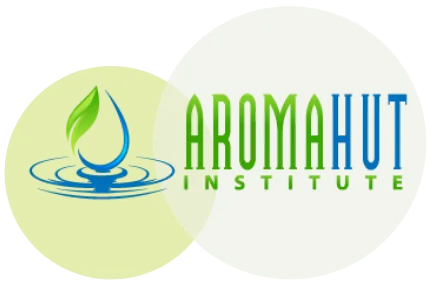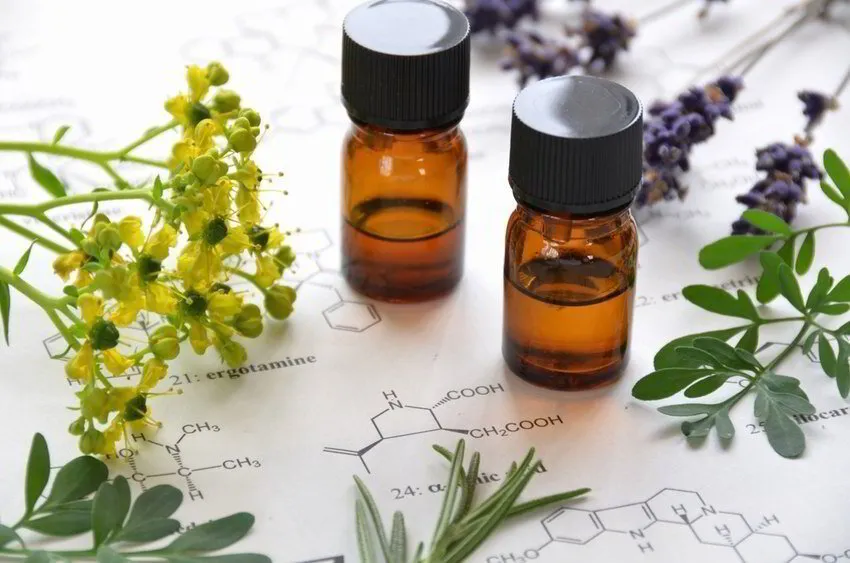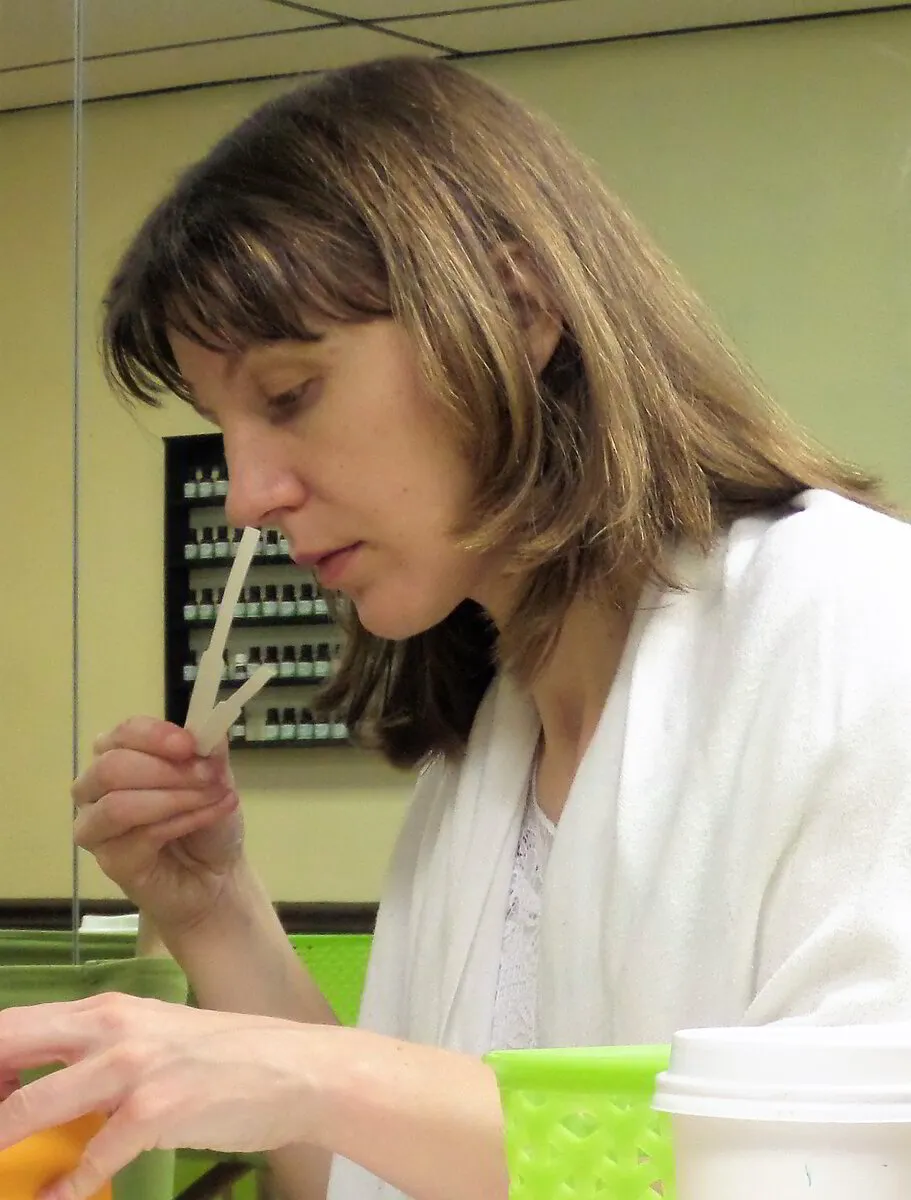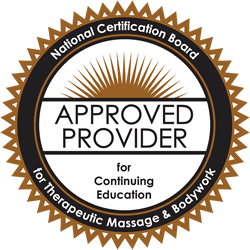ESSENTIAL OIL & AROMATHERAPY SCHOOLS
Our aromatherapy school is the first step toward obtaining your aromatherapy certification in preparing you for a career in aromatherapy.
AROMATHERAPY TRAINING
Accredited Aromatherapy Online School
As one of the few accredited aromatherapy & essential oils schools for online aromatherapy certification, we offer classes that give you hands-on training in aromatherapy and experience with essential oils in the comfort of your own home!
With the popularity and wide accessibility of essential oils online, there seems to be a vast misconception about what a Certified Aromatherapist is, does, or is required to offer to the general public. There is lots of information available on all kinds of essential oil usage, but whether this information is based on science or some Neptunian haze is up for grabs. If you can count on about 50% of what you read on the internet to be fact, then the other 50% is … well, fake. Even if there is a shred of truth to what you find, unless it comes from a reliable source, there are bound to be some errors, omissions, or blurring of reality. So how do you tell the difference? Moreover, where does that leave the person who is keen to try essential oils for the first time?
One major problem seems to be that many people don’t realize that essential oils can be quite dangerous if not used properly. If ingested or used full-strength topically, they could potentially cause serious harm. As many uninitiated tend to think essential oils are part and parcel of a hippie/‘new age-y’ alt-medicine cult, certified aromatherapy practitioners have been thrust into the center of a quandary.
You may be asking yourself, why should I attend an aromatherapy school? What can Aroma Hut Institute or any other aromatherapy school offer that I can’t read about online or from an MLM distributor pamphlet?
On the one hand, it is a great thing that these companies have opened the eyes of the masses to the benefits of essential oils. On the other hand, without the appropriate directions and cautions, their administration could do more harm than good. The only perfect answer to this dilemma is to create some sort of globalized standard of safety and use, which should include certification for its practitioners.
Accredited Aromatherapy Regulation (or Lack of It)
Currently, there is an ongoing controversy over several critical issues – ingestion, dilution, and the British vs. French methods of practice being the core topics – but much discussion can be heard surrounding ‘free education’ vs. certification also. The current lack of any legal standard of accredited training for aromatherapy schools fuels the fire.
With little to no official regulation keeping aromatherapy treatments consistent from practitioner to practitioner, those seeking treatment from an uncertified aromatherapist may well be taking a dangerous gamble with their health. In addition, there are literally hundreds – if not thousands – of MLM (aka ‘Network Marketing’) companies currently selling essential oils throughout the world, and you’ll be hard-pressed to find one of their ranks that are truly qualified in their use.
Lacking an educated understanding of the chemistry behind the oils, the different methods of extraction, the plant sources, and the science behind their use for the treatment of any number of issues, a person could potentially be a target for serious bodily injury.
FREE EDUCATION
Aromatherapy Schools and Free Information
It’s true; you can read all about aromatherapy on the internet. Different oils, sources, what they are good for, and how to use them. It’s out there, and most of it is reasonably accurate. The difference is that the internet can only generalize about your individual health, and so what might be recommended for some complaints may not work for you for various reasons. The problem is that there seems to be a widespread notion that because all this information is out there for free, then why should the practitioner need to be paid for the same thing at an aromatherapy school? Shouldn’t they be getting with the program and plying their wares, education, and experience for free?
Social media is a huge factor in driving this trend. Even health care professionals who want to use essential oils in their practice are left with more questions than answers. Safety is critical when prescribing any sort of treatment in a clinical setting, and widespread and generalized information reaches social media denizens that can be alarmist at times and appear to tout unsafe usage at others. It would be easy to say “consider the source” and try to direct people to find out whether an article is aimed at stimulating sales or if it comes from a qualified resource such as an aromatherapy school – but again, where is the standard? If the individual or company does not have a certification to stand behind, perhaps we should be questioning the motive.
If you are passionate about healing with essential oils, you would be doing yourself a favor by becoming certified. If you are interested in exploring the healing properties of essential oils, you should seek out the best and most qualified advice and treatment available to ensure your safety and to correct any misinformation you may have encountered on your journey. With all the misinformation floating about on the internet, it would be easy to make a mistake at the cost of your own – or worse, somebody else’s – health. Becoming certified opens the doors to countless other career paths and is an excellent adjunct to other natural and medical practices. But to be able to connect directly with an individual on a holistic level and to affect a positive and healthful change should be the true reward. Becoming certified in Clinical Aromatherapy will set you apart from the rest for anybody focused on natural healing or any professional practitioner involved in health and well-being. Without that distinction, you’re just selling snake oil.
We offer several different types of classes for you to choose from. These interactive essential oil aromatherapy courses were created with you in mind and built around your lifestyle, so you can start – take a break and pick it back up right where you left off anytime you’re ready. We’ll hold your place and keep track of your progress toward your NAHA Aromatherapy Certification.
Due to the surge of multi-level essential oil companies worldwide, the improper use of job titles in the essential oil industry can confuse and mislead the public. It is important to know the difference and what your education entitles you to use. As a graduate of our Level 1 program, you may refer to yourself as an “Aromatherapist.” As a graduate of our program, you may call yourself a “Certified Aromatherapist.”
For the Consumer: The safest route for obtaining guidance in the field of aromatherapy is to seek a private consultation with a professional who is a certified aromatherapist.
Things to Consider When Choosing an Aromatherapy School
Review the Curriculum Covered in the Course to make sure it is NAHA Approved.
One methodology students can use to evaluate how well a school will prepare them for a career as a professional aromatherapist is to compare the school’s required coursework to the coursework required for approval by the NAHA and AIA. Aroma Hut Institute is an approved school by NAHA with a curriculum that exceeds its standards.
Make Sure the Certification is Recognized Worldwide.
For students who plan to further their education in aromatherapy and move on to more advanced clinical programs, Aroma Hut Insitute ensures your certification will be recognized by other NAHA/AIA-approved schools for their Level 2 or 3 programs. Also, we are a training provider for the International Institute for Complementary Therapists (IICT) for students worldwide.
Verify that Your Aromatherapy Course Will Entitle You the Use of Professional Titles.
Due to the surge of multi-level essential oil companies worldwide, the improper use of job titles in the essential oil industry can confuse and mislead the public. It is important to know the difference and what your education entitles you to use. As a graduate of our Level One program, you may refer to yourself as an “Aromatherapist.” As a graduate of our Level 2 program, you may call yourself a “Certified Aromatherapist.”
Requirements for the Registered Aromatherapist
To sit for the Registered Aromatherapist exam, as the Aromatherapy Registration Council (ARC) notes, the student must satisfy this requirement: “Completion of a minimum of a 200-hour Level 2 program in aromatherapy from a college or school that is in compliance with the current NAHA and AIA Educational Guidelines.” (http://aromatherapycouncil.org/)
Upon completion of the Aromatherapy Certification Program from your aromatherapy school, the student may call themselves a Certified Aromatherapist, using the initials “C.A.” after their name. However, once a graduate takes and passes the Registered Aromatherapist exam, they can officially call themselves a Registered Aromatherapist, using the initials “R.A.” or both initials, “C.A., R.A.”
Career Options After Completion of Your Aromatherapy Education
A prospective student should also consider an aromatherapy school that provides the kind of aromatherapy education that will thoroughly equip the graduate to be able to provide the highest-quality and safest aromatherapy services possible to the public. Our certification program incorporates a personally-tailored curriculum that will best prepare a student to further their educational and professional advancement as a Certified Aromatherapist.
Upon completion of Aroma Hut Institute’s aromatherapy certification program, a graduate may choose to continue with the Teacher Training program that provides “private label” courses for a graduate to use as fit for teaching aromatherapy classes or start an Aroma Hut Institute franchise.
E X T R A H E A D I N G
Confirm Membership to Professional Organizations
As a graduate of the Aroma Hut Institute’s Aromatherapy Certification Program, students are qualified to join NAHA or AIA as professional members. In addition, graduates will be eligible to receive liability insurance for their practice.
Students enrolled in the Level One program at Aroma Hut Institute may join NAHA as a Level 1: NAHA Certified Level 1 Aromatherapist® and AIA as an Associate Member. Students that graduate from Level Two may join NAHA as a Level 2: NAHA Certified Professional Aromatherapist®.
Continuing Education Units (CEUs) available for Massage Therapists
Since massage therapy and aromatherapy are modalities that work so well together, Aroma Hut Institute offers continuing education units (CEUs) as an approved continuing education provider through the (NCBTMB) National Certification Board for Therapeutic Massage & Bodywork. By providing high-quality continuing education courses that will enhance a practitioner’s career, Aroma Hut is committed to making sure the student has the most current and reliable research available. The breakdown for courses offering CEUs is as follows:
30 CEUs for Foundations Level 1 In-Person Class
50 CEUs for Level 1 (100 hours) Online Course
100 CEUs for Level 2 (200 hours) Online Course
100 CEUs for Level 3 (100 hours) Online Course
24 CEUs for Body Systems (24 hours) In-Person Class







